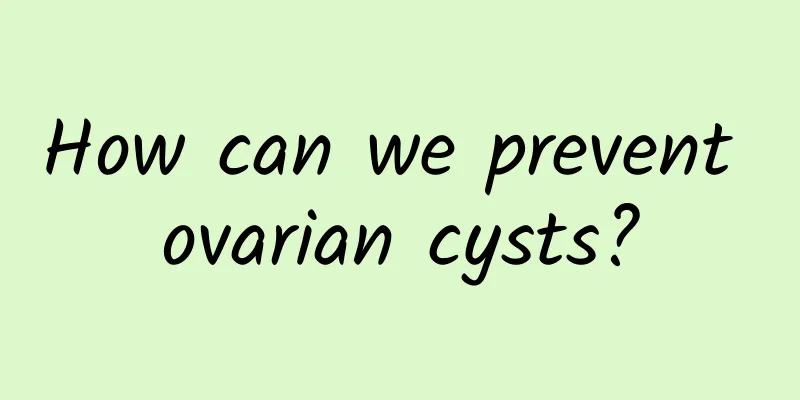Where do single women's gynecological diseases come from? These points may be more critical than you think

|
In today's increasingly information-rich world, all kinds of information about health are flooding our lives, but there is no lack of misunderstandings and prejudices. "How can gynecological diseases come from without a boyfriend?" Such questions actually reflect a one-sided understanding of the causes of gynecological diseases, which invisibly brings unnecessary psychological burdens to the single female group. Today, let's take a deep look at the real source of gynecological diseases in single women and how to prevent them scientifically. 1. Physiological structure and natural defense mechanism Gynecological diseases are not "exclusive" to women who have sex. Women's unique physiological structure, including the vagina, uterus, ovaries, etc., together constitute a complex ecosystem. In this system, various microorganisms such as bacteria and fungi coexist, maintaining a delicate balance between them, forming the microecological environment of the vagina. When this balance is broken, whether or not you are in a sexually active period, it is possible to cause gynecological problems such as vaginitis and cervicitis. 2. Living habits and personal hygiene 1. Choice and cleaning of underwear : Wearing tight, non-breathable underwear, or not changing sanitary napkins or panty liners for a long time may cause the private environment to be damp and stuffy, providing conditions for the growth of bacteria. Therefore, choosing cotton, loose underwear, changing it regularly, and paying attention to personal hygiene are the basis for preventing gynecological diseases. 2. Hygiene in public places : If you do not pay attention to hygiene when using public bathrooms, swimming pools, toilets and other facilities, it may also become an indirect transmission channel for gynecological diseases. It is recommended to use personal cleaning products to reduce direct contact with unclean objects. 3. Diet and work and rest : A high-sugar, high-fat diet, staying up late for a long time, and irregular work and rest will affect the body's immunity and make the body more susceptible to pathogens. A balanced diet and adequate sleep are essential to improving overall health. 3. Mental Stress and Mental Health The fast-paced life in modern society has put many people under tremendous mental stress. For women, long-term mental stress and mood swings will not only affect the balance of the endocrine system, but also weaken the body's resistance, thereby increasing the risk of gynecological diseases. Therefore, learning to self-regulate emotions and maintaining a positive and optimistic attitude are equally important for preventing gynecological diseases. 4. Drug Abuse and Excessive Cleaning Abuse of antibiotics : Whether you buy them yourself or follow a doctor's advice, the abuse of antibiotics may disrupt the balance of the body's flora, leading to an imbalance in the vaginal microecological environment, and then causing gynecological problems. Excessive cleaning : Some women mistakenly believe that frequent use of washing liquid or disinfectant can keep the private parts clean, but this is not the case. Excessive cleaning will destroy the natural defense mechanism of the vagina, making it lose its ability to clean itself and more susceptible to infection. 5. Scientific prevention to protect health Facing the potential threat of gynecological diseases, single women should learn scientific prevention. In addition to paying attention to personal hygiene, adjusting living habits, and maintaining mental health as mentioned above, they should also undergo regular gynecological examinations. Gynecological examinations are not "only for married women". They are an important means of evaluating women's reproductive health and can help us discover and deal with potential health problems in a timely manner. Enhancing self-protection awareness, understanding sexual health knowledge, and avoiding unclean sexual behavior are also important parts of preventing gynecological diseases. Single women also need to pay attention to their own health and effectively prevent the occurrence of gynecological diseases through a scientific lifestyle, good hygiene habits, and regular gynecological examinations. Let us work together to break prejudices, embrace health, and live out our own style! |
Recommend
Will women's chronic cervicitis be cured by medication? These methods are effective in treating chronic cervicitis
Whether chronic cervicitis can be cured by medica...
Introduction to the high-risk groups for common ectopic pregnancy
Ectopic pregnancy is a common gynecological disea...
Can the ectopic pregnancy test paper detect it? It can only detect pregnancy
The occurrence of ectopic pregnancy is not uncomm...
Can vaginitis and cervicitis be completely cured?
Can vaginitis and cervicitis be completely cured?...
Clinical treatment of Bartholinitis
The Bartholin's glands are located on both si...
What are the effects of eating soybeans on uterine fibroids? Can you eat soybeans for uterine fibroids?
Uterine fibroids are a common gynecological disea...
I went in for abortion 10 days ago, so it won't have much impact.
In clinical practice, abortion is called artifici...
How to treat yellow leucorrhea after artificial abortion? 4 methods to treat yellow leucorrhea
Yellow leucorrhea after abortion is likely caused...
Reduce sugar intake and you won’t feel hungry, which helps you lose weight and fight aging! Get rid of bad eating habits and regain your health. Master the five stages of reducing sugar in your diet
As the saying goes, "Diseases come from the ...
Can I exercise if I have cervical warts?
Recurrence of cervical warts refers to the recurr...
Is menopause amenorrhea?
Women will enter menopause at around 45 years old...
How to regulate irregular menstruation in women
How to regulate irregular menstruation? Many wome...
What nutrients does subserosal uterine fibroids lack? What medicine is good for subserosal uterine fibroids?
What nutrients are lacking for subserosal uterine...
How much does it cost to induce abortion?
How much does it cost to induce labor? This is a ...
Six major reasons for infertility caused by artificial abortion
Abortion is a very dangerous operation and will c...









